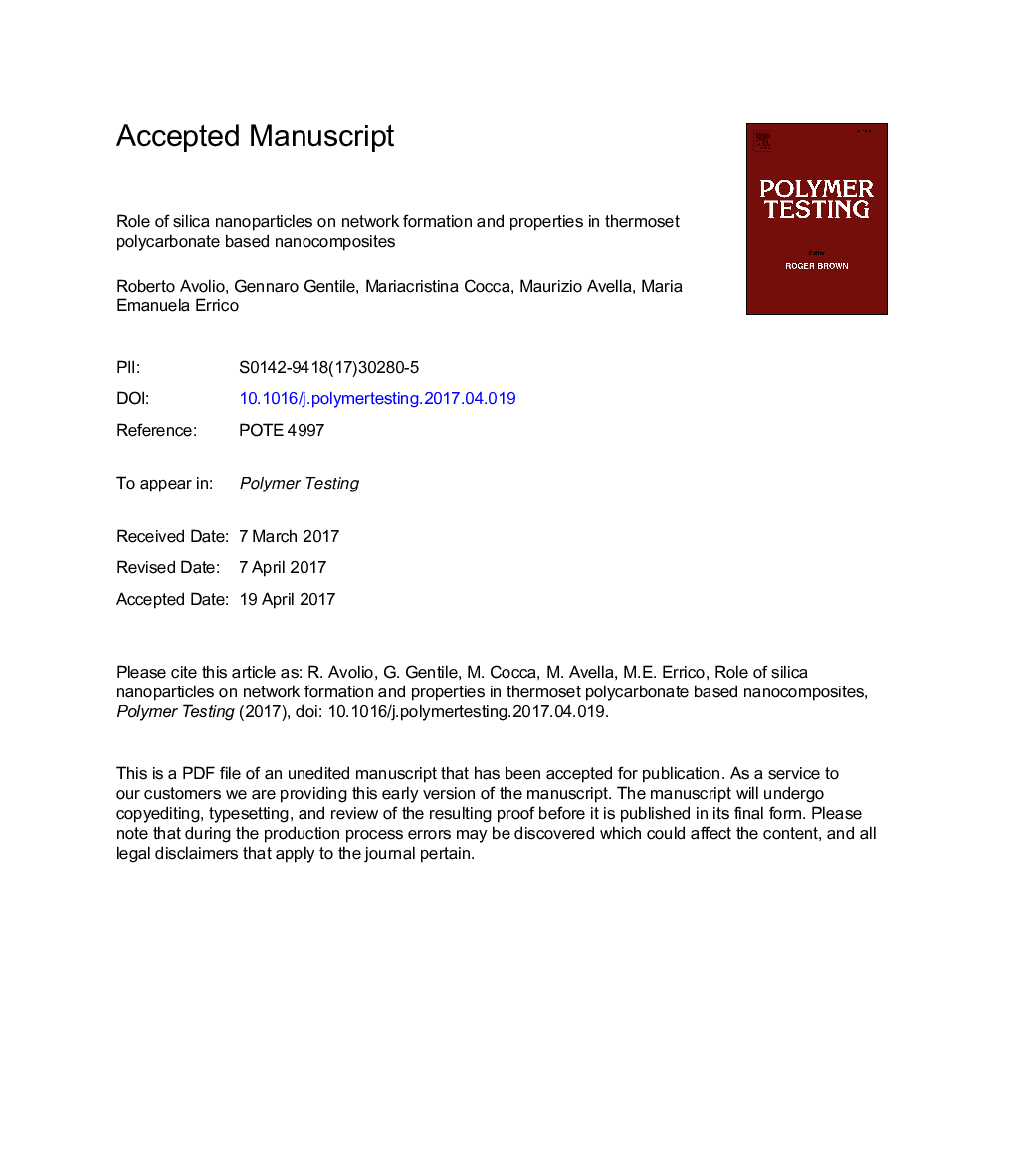| Article ID | Journal | Published Year | Pages | File Type |
|---|---|---|---|---|
| 5205461 | Polymer Testing | 2017 | 22 Pages |
Abstract
Nanocomposites based on thermoset polycarbonate and fumed silica nanoparticles were prepared by radical in situ polymerization. To avoid nanoparticle agglomeration, silica nanoparticles modified with a vinyl end capped silane agent were also used. The effect of silica particles and silica surface modification on the extent of polymerization and network density was evaluated. Silica nanoparticles reduced the amount of soluble oligomeric species forming during the diallyl carbonate polymerization and this was particularly pronounced in the case of modified silica. Nevertheless, the participation of surface modifier reactive groups to polymerization also caused a lower polycarbonate network density. SEM analysis showed that the proposed interfacial strategy was effective to control nanoparticle dispersion; no agglomeration phenomena were observed using modified silica. Nanocomposites preserved the polycarbonate stiffness while a toughness increase was recorded with the addition of neat silica. Particularly interesting was the effect of nanoparticles on the improvement of the abrasion resistance of the polycarbonate thus overcoming one of the drawback of this material.
Related Topics
Physical Sciences and Engineering
Chemistry
Organic Chemistry
Authors
Roberto Avolio, Gennaro Gentile, Mariacristina Cocca, Maurizio Avella, Maria Emanuela Errico,
